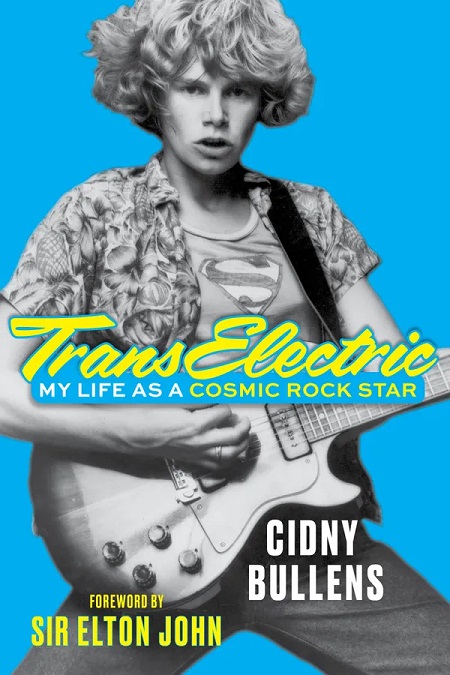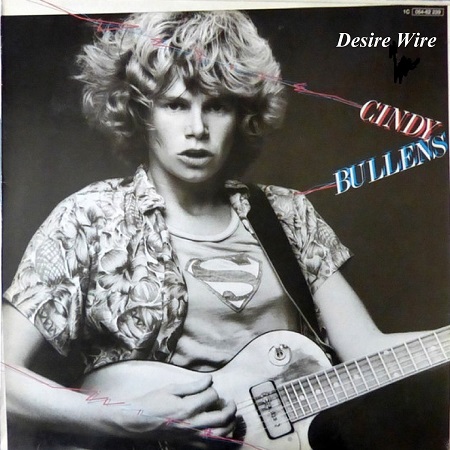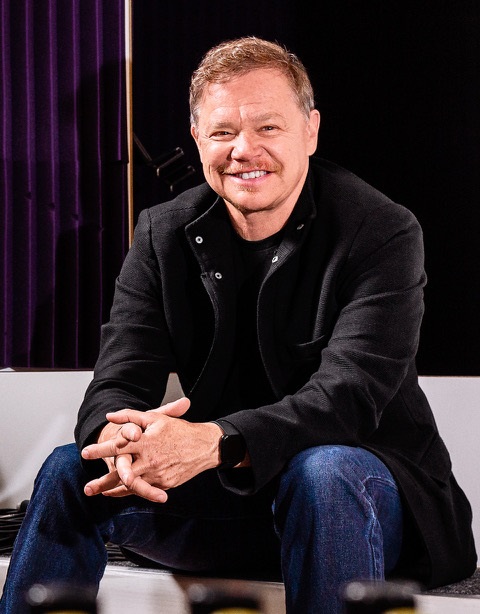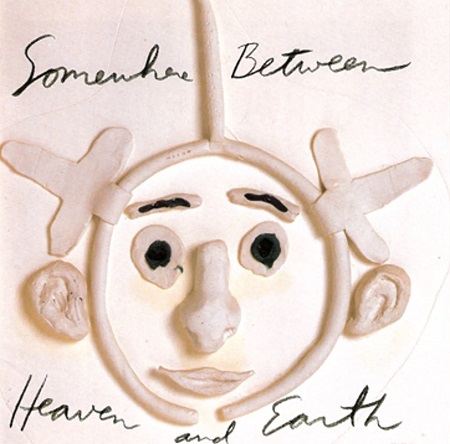There’s a notable omission from the acclaimed documentary 20 Feet from Stardom.
Cidny Bullens should qualify for cast inclusion simply based on the fact he launched his career backing up one of the biggest music stars on the planet back in the mid-‘70s. Making the jump from seemingly unknown studio singer to having to decide whether to join Bob Dylan’s Rolling Thunder Revue or Elton John’s Rock of the Westies tour is no small feat.
Spoiler alert: he would choose Elton.
And let’s not overlook the fact that Bullens’ voice shifts to front and center on three tracks on a certain mega-million-selling film soundtrack called Grease. Yep, that singer pining and crooning on “Freddy, My Love,” “Mooning,” and “Raining on Prom Night,” is none other than Bullens himself. While John Travolta and Olivia Newton-John dominate the soundtrack’s aesthetic and packaging, it’s Bullens who perfectly encapsulates the thoughts and yearnings of the average teenager.
Forty-five years ago, Bullens would make the brave leap to front-person status by releasing his debut album Desire Wire. At the time, Cidny Bullens was actually Cindy Bullens, holding the distinction of being one of the very few female solo rockers to garner the music industry’s attention — and spotlight.
“Basically, when I came out it was The Runaways and Fanny, who were a female group. Suzi Quatro was close; Blondie and all that, but they were different than me as well,” Bullens told me recently in a video interview from his Nashville home. “I was pretty much the first solo female rocker out there. None of the books say that but that was the way it was.”

The New England native first cut his musical chops in the studio backing up everyone from Byrds member Gene Clark to the Everly Brothers to Rod Stewart on his Atlantic Crossing album. As recounted in his new memoir, TransElectric: My Life as a Cosmic Rock Star, the androgynous rocker with a penchant for Superman T-shirts saw his music career take off after meeting famed producer Bob Crewe (the man who helped Frankie Valli and the 4 Seasons score chart gold) while accidentally intruding a dinner in Hollywood. It wouldn’t be long before Bullens would be on official nickname terms with Sir Elton (who dubbed him “Blanche”). Yet solo status was beckoning.
“I really felt like I was ready to be out there, to be doing my own thing. I kind of knew what the pitfalls were. I had been through my drug and alcohol stage, so by the time I had my own record deal I was clean and sober,” Bullens says. “This was an experience that I could fully appreciate and experience with all of my facilities and with support, so I wasn’t going to go off the rails somewhere.”
Looking like every team idol rolled into one with a floppy blonde lion’s mane of hair to match, Bullens would let his guitar rip in tandem with his powerhouse vocals. Working with collaborator Trevor Veitch, the origins of Bullens’ first solo album began with a trio of songs — “Survivor,” “Anxious Heart,” and what would become the title track. Bullens would also secure a manager, Tony DeFries – the man who helped turn David Bowie into a musical god and convinced John Mellencamp to adopt “Cougar” as a replacement surname.
“Being a solo artist and making my own record was a totally new experience. I’ve never been, ‘OK, I’m going to sit down and write a hit song.’ That’s not me. I sit down and I write and then whatever happens happens,” Bullens says. “Tony took a liking to me. He saw something in me that had been rejected by most other people and that was celebrating my androgyny, celebrating my different look and different appeal and the fact that I played electric guitar and wrote all of my own songs and so on. That’s why I went with Tony even against some business people’s opinions.”
“Desire Wire was recorded on spec,” Bullens adds. “I did not have a record deal for Desire Wire.”
On first and repeated listenings, Desire Wire is brimming with confidence and boasts some great musical moments – particularly the catchiness of the title track, the pointed edge of “Mean in Your Heart,” and the Wall of Sound meets Sha Na Na-worthy nostalgia of “High School History.” For Bullens though, any acclaim surrounding the album is bittersweet.
“I will say I really love that album; I really love the songs on that album; I’m very proud of the album but I can’t listen to it,” Bullens says. “The reason I can’t listen to it is because I don’t sing it in my natural voice. I had this pure voice and Bob [Crewe] really encouraged me to sing in the high voice. He said it had more energy. Think Frankie Valli and the Four Seasons — he’s the one who made Frankie have a falsetto voice, which he didn’t have originally. I believed him. I was young, I didn’t know any better.”
Desire Wire kicks off with the anthemic “Survivor.” Replete with an Andrew Gold-worthy piano lick and Bullens’ dynamic presence (which can still be felt even if not seen) the track would secure Bullens a Grammy nomination in 1979 for “Best Female Rock Vocal Performance” where he would be up against icons like Carly Simon, Rickie Lee Jones, and Bonnie Raitt. Unfortunately, he would lose out to Donna Summer for “Hot Stuff.”
“The album got great reviews. The New York Times gave it a wonderful review. “Survivor” was rising up on the Billboard charts until the record company [United Artists] folded into another one and then it disappeared,” Bullens says. “I was totally surprised when I got nominated for the Grammy because by that time the record was gone.”

Desire Wire would open doors for Bullens, including television appearances on “American Bandstand,” “Don Kirschner’s Rock Concert,” and “The Merv Griffin Show,” as well as club dates as a headliner. He would even open shows for corporate rock favorites Styx. Following the dissolution of United Artists, Bullens would join the roster at Casablanca Records and release his second solo album Steal the Night in 1979. That album wouldn’t garner much by way of fanfare or attention.
While Bullens would record a third album – his second for Casablanca ─ it would never be released.
“Neil Bogart signed me and really liked me and wanted me to really flourish there, but he left soon after. The new president came in and said, ‘We don’t want you to write your own songs, we don’t want you to look the way you look, we don’t want you to produce, we don’t want you to do anything. We just want you to sing like a girl, basically,” Bullens says. “I didn’t and I couldn’t. I left without that third album ever being released. I couldn’t compromise. That was the end of my career for almost 10 years.”
***
Was it simply drive? Tenacity? All Cidny Bullens knew from the time he was a kid, he wanted to be a rock and roller. His dream would take him from Massachusetts to New York to Hollywood to eventually a place most of us dream of but never experience.
“That was my dream, to be the frontperson. But I loved being a backup vocalist and learning about this in the studio and everything,” he told me. “I wasn’t saying, ‘Oh shoot, I’m singing backup vocals and I should be singing lead.’ It wasn’t anything like that. I loved it because I learned so much. The only person I ever sang live backup vocals with in terms of a job was Elton John. I started at the top doing that.”

Joining Elton on tour would prove a heady experience for a then 25-year-old, given that Captain Fantastic, but the time 1976 rolls around, has albums debuting at number one on the US charts and is selling out every stadium he plays. This is the time when tennis legend Billie Jean King, a star of her own, would be a frequent presence in the Elton posse. Bullens would take the opportunity to soak everything up and use these experiences as a primer for how to grab and enthrall an audience.
“The part about being on stage and engaging an audience was a complete education with Elton because he could do it better than anybody pretty much,” he says. “But also what it was like to be a rock and roll star on the personal level – seeing behind the scenes and spending time with him personally while not on stage, that was an education for me.”
After his tenure with Elton (who writes the forward to TransElectric), Bullens’ next claim to fame is singing lead on the three aforementioned tracks on the Grease soundtrack. To bury the lead, the soundtrack would hit number one, sell millions of copies worldwide, make “greased lightning” part of the cultural – and sexual — lexicon, and secure a Grammy nomination for “Album of the Year” in 1979.
As Bullens describes:
“I have Bob Crewe to thank for that. He called me one day in 1977 and he said, ‘You’re going to get a call from a guy named Louis St. Louis and he wants you to sing on a movie soundtrack. And I’m like ‘OK.’ Didn’t know anything about it. I got a call from Louis St. Louis and he gave me the time and the studio. I went in and in my mind, I was going to be singing backup vocals because that’s what I was doing at the time … The reason that Louis St. Louis called Bob Crewe is he wanted to know if Bob knew somebody who could sing in a ‘little girl voice.’
“I was shocked that I was singing lead … I left the studio having sung lead vocals on three songs from the Grease movie soundtrack not knowing what it was, what it was going to be. I didn’t know anything about it.
“It took like three hours, that was it. I thought, ‘Oh good, I’m going to be paid 90 bucks for a session.’ It turned into a phenomenon and the rest is history. That’s why I was at the Grammy’s the next year sitting with everybody in the third row for best album of the year. It’s followed me around my whole life.”
To date, Bullens has released 10 solo albums; the latest one having been released at the end of October entitled Little Pieces (via Kill Rock Stars). The album is Bullens’ first to bear the name Cidny Bullens and address his transition from female to male, which began more than a decade ago. Though Americana in nature, the album also boasts traces of rockabilly, rock, and country music.

Back in the 1980s and 1990s, Bullens would live a more traditional life, married to Bob Crewe’s brother Dan and living in Connecticut and Maine. While Bullens would release the albums Cindy Bullens and Why Not? In 1989 and 1994, respectively, his fifth album, Somewhere Between Heaven And Earth (Artemis Records) would be his most heartfelt and heartbreaking. The album, which features appearances from Bryan Adams, Lucinda Williams, and Bonnie Raitt, was released in the wake of his youngest daughter Jessie’s death in 1996 at age 11 from complications from Hodgkin’s disease.
“It’s not a morbid album, it’s not a downer album. Each of those songs came through me in a moment of my grief over the first two years after her death,” Bullens told me. “I would sit down and start playing the guitar and a song would come out. It consumes you. That’s it. That’s what’s going on, is the loss of your loved one for however long it takes for you to take a breath. For me, it was years. Even though I created those songs within first two years after her death, that was what saved me.
“That album is my legacy or at least a big part of my legacy because it still, to this day, affects people,” he adds. “I have heard from people on literally every continent on Earth except Antarctica. And probably every state. And many, many countries around the world. Somehow by word of mouth, it has gotten to people around the globe and affected people around the globe. For that I’m very grateful.”
Now remarried with four grandchildren, Bullens relishes being a more acoustic artist, not just on his solo records but also as part of a longstanding trio called The Refugees (which features Animal Logic frontwoman Deborah Holland).
“I’m an old rocker but I’ve been an acoustic artist too,” he says. “I started using my acoustic guitar in 1990 and that’s when I decided I would be a singer-songwriter with just an acoustic guitar and piano and not need a band. For the last 33 years that’s what I’ve done.”
Still when I mention at the top of our interview that Bullens had minimal female company in the rock world (i.e., Joan Jett) at the time of his solo start, he makes one thing clear:
“I was the first. Joan Jett came a lot after me.”

***
Share your feedback and suggestions for future columns with Ira at vinylconfessions84@gmail.com. Ira’s new book, “Hello, Honey, It’s Me”: The Story of Harry Chapin, is available for purchase here.
![]()









